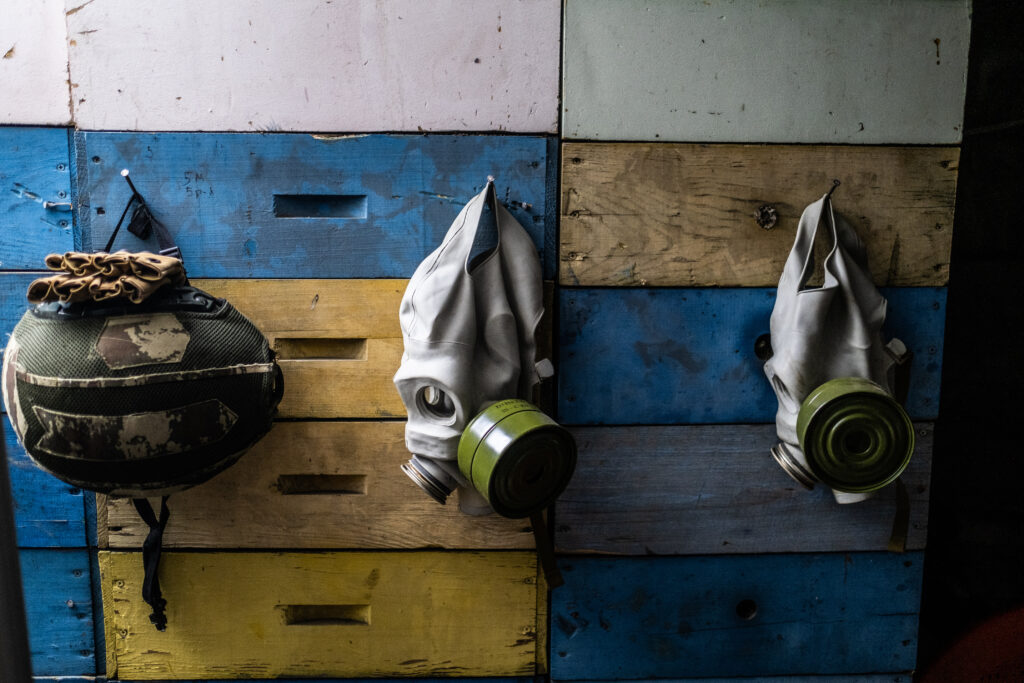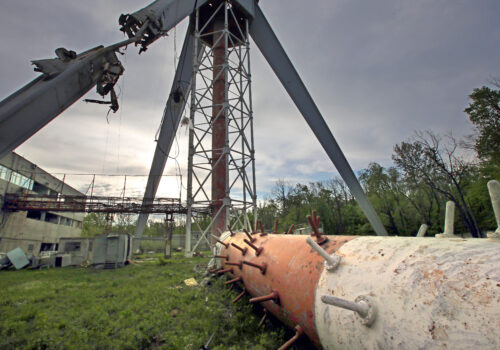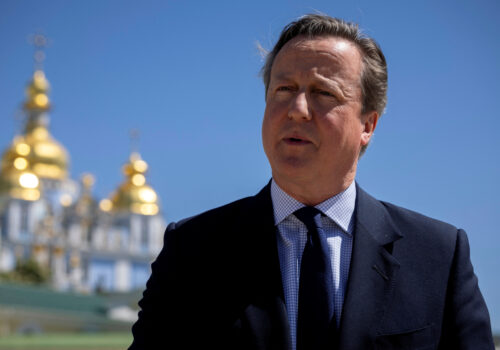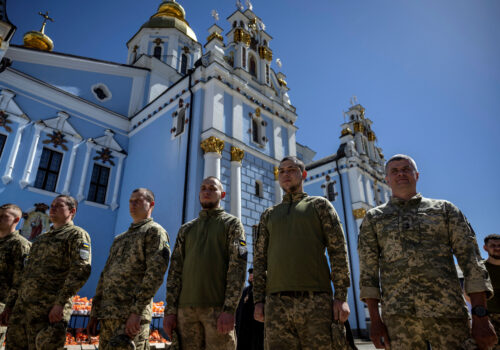After years of Ukrainians sounding the alarm over Russia’s alleged use of chemical weapons, the US Department of State has now substantiated these claims and has announced new sanctions on Russian actors for their role in enabling the country’s chemical and biological weapons programs. In an official statement, the United States charged Russia with using “the chemical weapon chloropicrin against Ukrainian forces in violation of the Chemical Weapons Convention.” Why does this matter, and what comes next?
Historically, chemical weapons have been used to break a stalemate, weakening an enemy’s front line troops and providing an opening to push forward. Russia’s use of chemical weapons might suggest that strategists consider the invasion of Ukraine to be a stalemate, or are desperate to avoid one. As fears of a stalemate persist across Ukraine, Russia, and the West, it isn’t difficult to predict a scenario in which Russia could use chemical weapons more widely to achieve a breakthrough.
Chloropicrin, a chemical agent frequently used for riot control, is banned for use in a warfare setting under the Chemical Weapons Convention, which Russia has been a signatory to since its inception. Over the past two years, Ukraine has reported some 1,400 cases of chemical weapons use, but these claims had not been confirmed by third parties until the May 1 statement released by the US State Department.
If Putin has no qualms about using banned weapons, why choose chloropicrin? As far as chemical weapons go, chloropicrin is less lethal than other weapons suspected to be in Russia’s arsenal. By using a weaker agent, Putin’s goal does not seem to be maximum death and destruction in this case. Rather, he may be testing the waters to gauge the international response and determine just how far he can go. A strong reaction from the international community is therefore vital to make clear that widespread use of chemical weapons is completely unacceptable and will not be tolerated.
Stay updated
As the world watches the Russian invasion of Ukraine unfold, UkraineAlert delivers the best Atlantic Council expert insight and analysis on Ukraine twice a week directly to your inbox.
Russia’s previous uses of chemical weapons outside of Ukraine have been met with a tepid response at best. For example, after Sergei Skripal was poisoned in the UK with a Novichok agent (a class of nerve agents developed in the Soviet Union) in 2018, the US and a handful of its European partners released a statement condemning the attack, expelled diplomats, and the US levied sanctions under the Chemical and Biological Weapons Control and Warfare Elimination Act. Did this rein in Russia’s chemical weapons tactics? Alexey Navalny’s subsequent poisoning with Novichok in 2020 would suggest not.
In response to the latest allegations, the United States has so far announced sanctions on seven Russian government programs and companies associated with the Kremlin’s chemical and biological weapons programs. These measures are an attempt to reduce Moscow’s ability to wage chemical warfare. More must now be done. Failing to curb the use of chemical weapons in Ukraine would have potentially catastrophic consequences, both for Ukrainians and for international security more broadly. The United States and its partners therefore cannot afford to wait and see whether current sanctions measures are effective.
In the early phases of Russia’s full-scale invasion, US President Joe Biden pledged that “Russia will pay a severe price if they use chemical weapons.” Do sanctions alone constitute a severe response? If such measures have not convinced Putin that he cannot use chemical weapons after recent assassination attempts, can we expect them to work when his back is against a wall trying to win a major war?
Eurasia Center events

Looking to the past provides little clarity on possible actions available to Ukraine’s partners. After the Bashar al-Assad regime used chemical weapons in Syria in 2013, the United States and Russia worked together to force Syria to join the Chemical Weapons Convention and destroy its stockpiles. Without Russia’s participation and considering its veto on the United Nations Security Council, something similar on this occasion looks impossible. When Syria continued to use chemical weapons, the United States, United Kingdom, and France targeted chemical weapons facilities with missiles, another option Western leaders have seemingly taken off the table in relation to Russia.
The best option available to the United States and its allies might be to deny Russia the opportunity to use banned weapons. If Putin’s strategy would dictate using chemical weapons in the case of a stalemate, then Ukraine’s partners must ensure it gets the military aid needed to avoid such a situation. While the United States might be unable to strike inside Russia as it did in Syria, providing Ukraine long-range weapons and the intelligence support to carry out strikes against chemical weapons facilities could take away Russia’s chemical capabilities while sending a strong message against using banned weapons.
This is not to say the United States should not explore options for international cooperation. At the end of the day, Russia using chemical weapons endangers more than Ukraine. Galvanizing broader support from around the world can help preserve critical norms and is a necessary step to protect against chemical weapons proliferation globally. While the West has struggled to work with China or partners in the Global South on Ukraine, a coalition rejecting the use of chemical weapons presents an opportunity to protect Ukrainian lives while reinforcing international norms and building trust that chemical weapons are unacceptable in all contexts.
Emma Nix is an assistant director with the Atlantic Council’s Europe Center.
Further reading
The views expressed in UkraineAlert are solely those of the authors and do not necessarily reflect the views of the Atlantic Council, its staff, or its supporters.

The Eurasia Center’s mission is to enhance transatlantic cooperation in promoting stability, democratic values and prosperity in Eurasia, from Eastern Europe and Turkey in the West to the Caucasus, Russia and Central Asia in the East.
Follow us on social media
and support our work
Image: Gas masks of Ukrainian soldiers on the Pisky frontline. The ghost town of Pisky was taken by Russian in August 2024. Since then, this frontline is frozen. (Photography by Virginie Nguyen Hoang / Hans Lucas via REUTERS) UKRAINE, region du Donbass, 2023/05/14 : masques a gaz de soldats ukrainiens sur la ligne de front de Pisky. La ville fantome de Pisky a ete prise par les Russes en aout 2024. Depuis, cette ligne de front est figee. Photographie de Virginie Nguyen Hoang / Hans Lucas.




